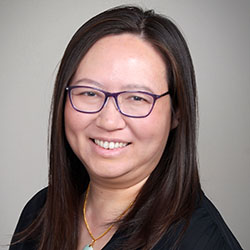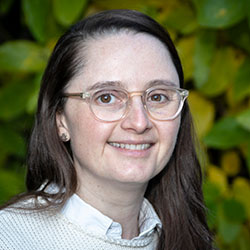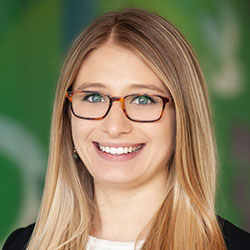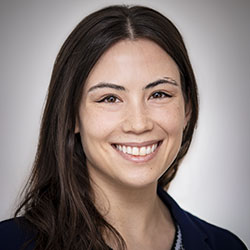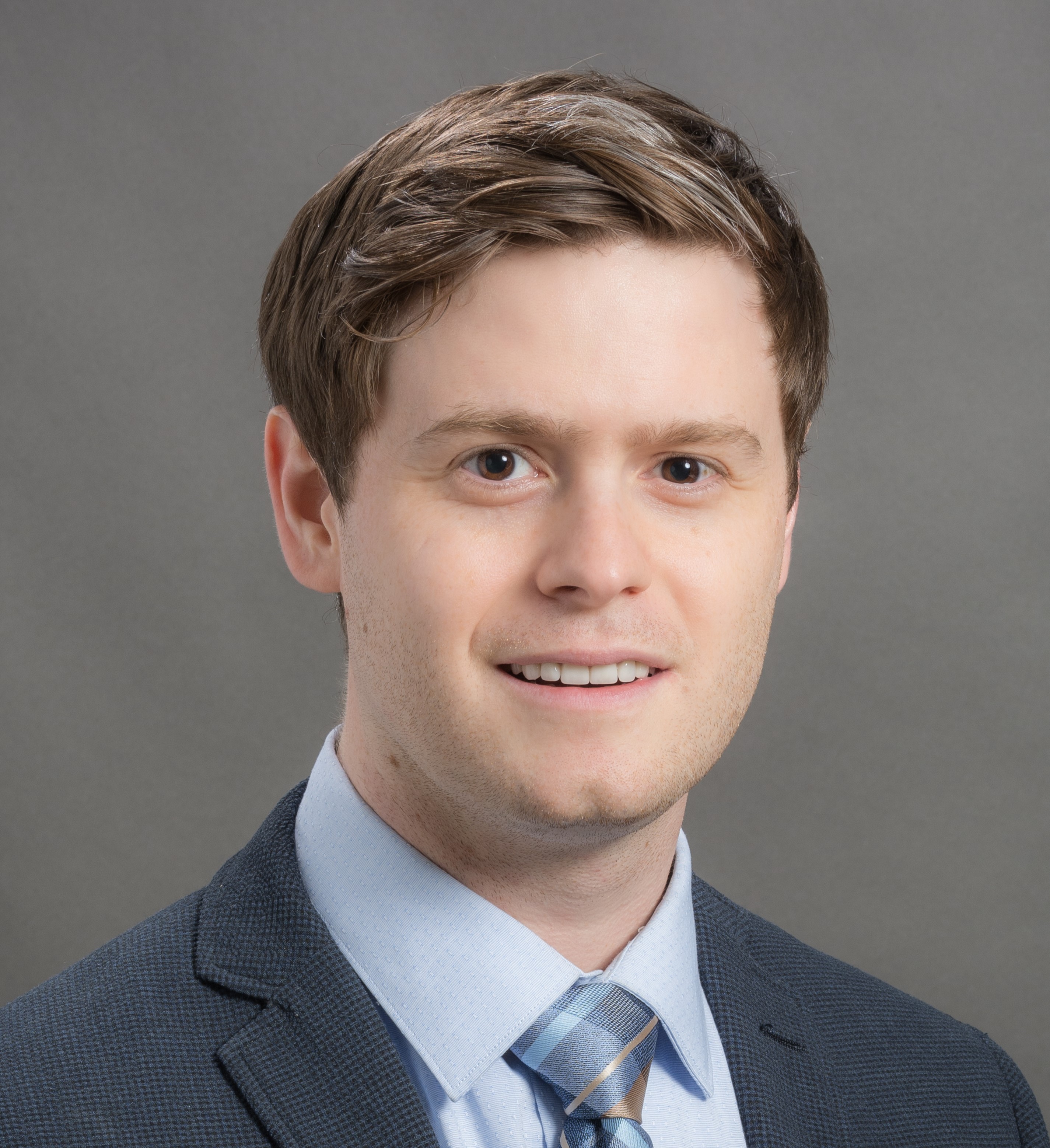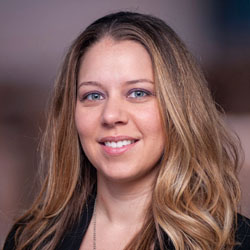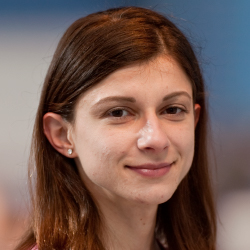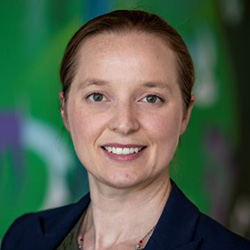Mitochondrial Medicine and Metabolism Clinic
What are mitochondrial diseases?
Mitochondria in our cells help make almost all the energy we need to live and grow. In mitochondrial diseases, these energy-making parts of the cell do not work the way they should.
The greatest effect is on body systems that need the most energy, like the heart, muscles, nervous system and brain. Your child may be tired and have weak muscles, sleep problems and delays. These conditions may cause seizures, strokes, diabetes or problems with your child’s heart, digestive system, liver, kidneys or vision.
How will the Mitochondrial Medicine and Metabolism Clinic meet my child’s needs?
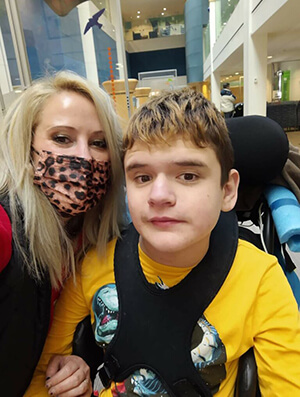
Seattle Children’s Mitochondrial Medicine and Metabolism Clinic combines advanced care and diagnosis with cutting-edge research. We are among only 19 programs in the nation recognized by the Mitochondrial Care Network as a certified Mitochondrial Medicine Center.
Healthcare providers from many specialties work as a team to diagnose and treat children with mitochondrial diseases and other . We offer the latest treatments, including new therapies being tested in .
We work closely with Seattle Children's Research Institute, research labs all over the world and the Mitochondrial Research Guild, which was founded by families of patients at Seattle Children's.
Conditions We Treat and Diagnose
We see babies and children with mitochondrial conditions of all kinds.
-
Known common mitochondrial syndromes
These include:
- Alpers-Huttenlocher syndrome
- Kearns-Sayre syndrome (KSS)
- Leber hereditary optic neuropathy (LHON)
- Leigh syndrome
- Mitochondrial encephalomyopathy lactic acidosis and stroke-like episodes (MELAS)
- Myoclonus epilepsy with ragged red fibers (MERRF)
- Neuropathy ataxia retinitis pigmentosia (NARP)
- Pearson syndrome
- Progressive external ophthalmoplegia (PEO)
-
Electron transport complex (ETC) enzyme deficiencies
These conditions may start anytime during a child's life. Most get worse over time (degenerative). They usually affect many body systems and may cause a wide range of symptoms.
Children may have:
- Problems with their heart, digestive tract, vision, muscles or kidneys
- Shorter height
-
Mitochondrial DNA depletion syndromes
These genetic diseases may start anytime during a child's life. They include:
- Alpers-Huttenlocher syndrome
- Autosomal recessive and dominant progressive external ophthalmoplegia (PEO)
- Deoxyguanosine kinase deficiency
- Mitochondrial neurogastrointestinal encephalomyopathy
- Myocerebrohepatopathy spectrum (MCHS) disorders
- Myoclonus epilepsy myopathy and sensory ataxia (MEMSA)
- Thymidine kinase 2 deficiency
-
Disorders of mitochondrial function
These rare disorders affect many processes in the body, such as making protein and processing iron.
They cause a wide range of disorders. These include:
- Cognitive delay
- Leukoencephalopathy
- Motor delays (both gross and fine)
- Movement disorders
- Secondary diseases such as diabetes
- Sensory neuropathy
-
Metabolic diseases that affect mitochondrial function
Many metabolic disorders may affect the mitochondria. These include problems with:
- How the body makes, breaks down or uses proteins, fats or carbohydrates
- The building blocks of and
Services We Provide
Our team works with your family and other caregivers and providers to:
- Diagnose your child’s condition
- Fully assess how your child’s condition affects them
- Create a care plan
- Make sure your child gets the right tests
- Refer your child to the specialists, treatments and services they need for their best health
Our goal is to help your child reach their full potential with their highest possible quality of life.
-
Comprehensive mitochondrial and metabolic evaluation
To help find out about your child's condition, we may do 1 or more of the following:
- Run lab tests on your child’s pee (urine) or blood
- If necessary, take very small samples (biopsies) of your child's muscle, liver or skin tissue. We look at the structure and function of the mitochondria.
- Offer when it may be helpful.
-
Genetic analysis
Almost all diseases that affect mitochondria are caused by changes in . We use standard genetic analysis to find out if 1 of these is the reason for your child's condition.
Our team does research to test for genetic causes of mitochondrial problems. We use new technology called massive parallel sequencing.
-
Neuropsychological testing
We offer a full analysis of your child's language, learning, memory and motor functions. on your child's care team will do 1-on-1 testing. We are among the few centers in the world that provide this type of testing.
-
Advanced neuroimaging
Neuroimaging provides high-quality pictures of the structure and function of the brain. We use the most advanced techniques to see how mitochondrial disease may be affecting your child's brain.
shows the brain's structure. Proton detects changes in many types of brain chemistry in real time. Problems with mitochondria may cause these changes.
-
Anesthesia for procedures
Our are trained to meet the special needs of children with mitochondrial diseases. We use during any surgery your child may need, such as taking a tissue sample for biopsy or placing a feeding tube (gastrostomy tube).
-
Dietary management
Sometimes we order special diets for children with mitochondrial diseases or metabolic diseases that affect mitochondria. For example, children with pyruvate dehydrogenase deficiency need to eat a diet that is high in fat and low in protein and carbohydrates (). Our Biochemical Genetics program also helps manage the dietary needs of children with these disorders.
-
Neuromuscular testing
Our neuromuscular experts are highly trained to analyze any problems with how your child’s muscles and work.
Scheduling an Appointment With Mitochondrial Medicine and Metabolism
- If you would like an appointment, ask your primary care provider to refer you to the Mitochondrial Medicine and Metabolism Clinic at Seattle Children’s Neurosciences Center.
- If you have a referral, please call 206-987-2078, option 1 for scheduling. We see patients at Seattle Children’s hospital campus.
- See more about how to schedule an appointment with Seattle Children’s Neurosciences Center.
- Your child’s first appointment in our clinic will be in person and take about 90 minutes. Later visits may be offered via telehealth (virtual).
- Learn about mitochondrial medicine resources such as useful links, videos and recommended reading for you and your family.
- Providers, see how to refer a patient. Mitochondrial Medicine and Metabolism is part of our Neurosciences Center.
Who’s on the Mitochondrial Medicine and Metabolism team?
Providers from many specialties will work as a team to care for your child. As needed, your child will receive care from experts in neurology, epilepsy, neuromuscular disorders, inborn errors of metabolism (biochemical genetics) and many other fields. Researchers at Seattle Children's Research Institute are a key part of our team.
In addition to the providers listed below, we work closely with specialists in immunology, neurodevelopment, endocrinology and rehabilitation services such as physical therapy, occupational therapy and speech therapy.
Leadership
-
Attending Physician, Neurology
Teams
Biochemical genetics
Neuropsychology
Nursing
-
Laurie Guidry, RN, research nurse coordinator
-
Coral Sepulveda, MSN, RN, CNL, mitochondrial clinic coordinator
Contact Us
If you would like an appointment, ask your primary care provider to refer you to the Mitochondrial Medicine and Metabolism Clinic at Seattle Children’s Neurosciences Center.
If you have a referral, please call 206-987-2078, option 1 for scheduling.
Providers, see how to refer a patient.
Telemedicine at Seattle Children’s
Your child’s first appointment in our clinic will be in person and take about 90 minutes. Later visits may be offered via telehealth (virtual). Learn more.
Paying for Care
Learn about paying for care at Seattle Children’s, including insurance coverage, billing and financial assistance.



